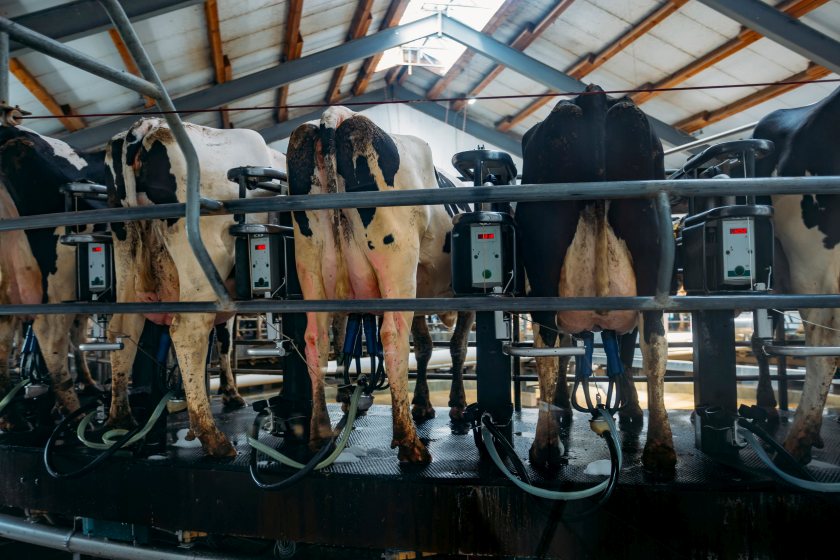
A new initiative which is seeking to significantly reduce the dairy sector's emissions is still on the lookout for farms to participate in it.
The UK Dairy Carbon Network is inviting farms to participate in the project to demonstrate practical solutions aimed at reducing greenhouse gas emissions.
Led by AHDB and AgriSearch, the network will select, trial, and evaluate various strategies to make the sector greener.
The project, which is being funded by Defra, is currently seeking dairy farms from three regional networks to take part over three years.
Farmers in North-West England; South and South-West England; and Cumbria and South-West Scotland can apply until 14 April. Applications from Northern Ireland have closed.
Professor Steven Morrison, project lead, said: "Our goal is to drive meaningful change in the sector by applying research findings directly to real-world farming conditions and measuring the impact.
“By working closely with farmers and using advanced measurement and modelling techniques, we aim to measure and report significant reductions in the carbon emissions from dairy farming in the UK.
"During the formation of the project the interest from across the agricultural sector was immense, with over 50 organisations offering support and indicating a willingness to get involved in the project.”
Ultimately, the project aims to help dairy farmers make informed, sustainable decisions, contributing to a greener future for the UK dairy sector.
Those who sign up will receive a tailored action plan, one-on-one support and a farm liaison officer.
They will also receive financial assistance for active involvement and access to networking events and knowledge-sharing meetings.
Professor Morrison added: "The selected farmers will be at the heart of these dynamic networks and will demonstrate a range of carbon mitigation strategies on their farms.
"The lessons learned from this will be communicated to policy makers, industry, academia and, most importantly, other farmers.”
